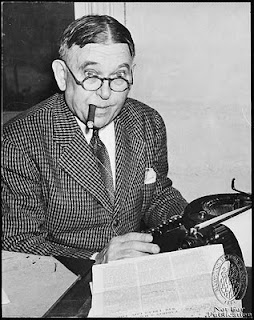The View from Afar
Writings by retired newspaper publisher Stephen Waters

The fabric of society: 5. Individuals were haphazardly taught character
fas05of14 Rome (NY) Sentinel 2015-10-06 October 6, 2015
In the 1700s, philosopher Immanuel Kant wondered, why it was that moral instruction accomplished so little. Yet, he observed, even little children understand that you should do a thing because it is right.
The challenge is to go beyond rewarding good behavior, which Kant recognized was ineffective, to do that which Socrates called not ‘teachable, like geometry,’ but teachable in a way, that we might produce not docile sheep but responsible, growing, inquiring citizens.
Fixed rules are incomplete. The Social Studies frameworks consider rules and law to be an enduring understanding. Confucius, 2500 years ago, knew that approach to be a last refuge.
Confucius determined there were natural saints who intuitively knew the way to live. A second, larger group, to which he considered he belonged, could learn the way. The least capable group remaining required fixed rules of behavior he called laws or ritual. Current school curricula plays to the last group, supporting order imposed rather than order individually understood and voluntarily applied.
Forcing obedience doesn’t teach character. Virtues like ‘respect’ and ‘obedience’ sometimes lead to the wrong result. Sometimes ‘respect’ is not deserved, as when authorities demand action that would be unethical and blind obedience would not be virtuous. ‘Obedience’ is important, until it comes into conflict with other virtues. If teaching only virtues leads to lack of character, there needs to be a way.
Teaching vocabulary doesn’t teach character. Some suggest courses propose to teach vocabulary to learn to exercise judgment. Teaching the vocabulary of virtue may not develop character by any means other than chance. Learning virtues is different than developing virtue. To teach someone to ‘Be this way’ or ‘Be that way’ attempts to teach the result you want to achieve, absent the process to get there. Character isn’t promoted through character vocabulists plastering posters in public places:
Loyalty – Using difficult times to demonstrate my commitment to those I serve. That is a platitude that masquerades as wisdom. Who are those served, and why should one commit to them? Commitment became a liability during the Nuremberg trials after World War II.:
Wisdom – Making practical applications of truth in daily decisions (versus foolishness) That is stretching to find both the vocabulary and the definition.
Integrity – The moral excellence in my life as I consistently do what is right. To decide what is right is left as an exercise to the student.
New “virtues” can be manufactured that are as fact-based as anything other vocabulary offered:
Voluptuousness – Using one’s beauty to best advantage!
Far from promoting ‘Character’, virtue-promoters want the warm feeling they get when they convince themselves they promote character. Results don’t matter when mastery of the vocabulary of virtues substitutes for character. Vocabulist virtues are like numbers trying to substitute for mastery of arithmetic. ‘Seven! Seven is a good number! Learn seven and arithmetic will certainly follow. Five! Five is another worthwhile number. Master seven, five, and other numbers and arithmetic will magically appear.’ Numbers and arithmetic are not the same thing.
Emulation doesn’t build character. If to encourage character, one holds up exceptional people to emulate, like Luther Burbank, Martin Luther King, Abraham Lincoln, George Washington, should one emulate their actions or emulate how they decided to act?
How does one decide who to emulate or what trait to emulate? Emulating virtues leads to the appearance of virtue, not to the solid thought processes that lead to why virtuous behavior is worthwhile. Persistence shouldn’t be emulated because Washington had it. Persistence comes from understanding what is important and why. People teach the result they want but not the skills to get there. Teach virtues alone risks overlooking the need to nudge people to recognize for themselves critical processes of thought.
People insist on trying to push character onto others when much of the real work—the work inside their own head—remains unfinished. If you think you know what to do but don’t know why, then you don’t know character, much less how to convey it to someone else.
A virtue is a shorthand label for the result of thoughtful analysis about a general concept that is, itself, easily acceptable and easily understood from one’s own personal experience. Process concepts help people decide what to do so they can plan for their better future.
Virtues result from thinking about yourself, society, life and your place in it. A handful of process concepts allow people to help themselves.
Youngsters may have to be guided by rules until they mature enough to come to see the practical value in it for themselves. They need to develop the skill to consider points of view, and to value thinking as a tool for self-protection.
[The next article examines how individuals produce character.]

Stephen B. Waters
In early 2021, with 46 years in the business, I retired as publisher of the Rome (NY) Daily Sentinel
After five generations of family ownership, despite an unsettled economy, we keep on. We understand that although we may own the newspaper, we hold it in stewardship for the community.
Across my career, so many other small newspapers were purchased by media chains, large newspapers sold their integrity, and broadcast news outfits fell back on superficial entertainment.
They put journalism in this country at risk. The best antidote is for individual readers to arm themselves to recognize the danger to their community, culture, and society itself.
Index
-
 sbwTweet
sbwTweet
Mostly Links and Retweets -
 Essays
Essays
Writings across time -
 Editorials and columns
Editorials and columns
For the newspaper -
 Presentations
Presentations
Community discourse -
 Books
Books
Published and available -
 Audiobooks
Audiobooks
Readings and more